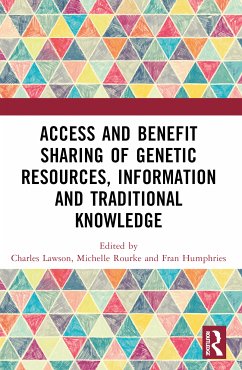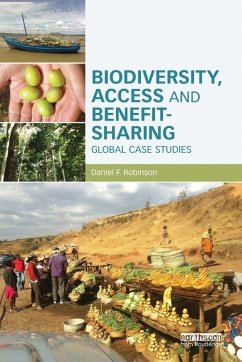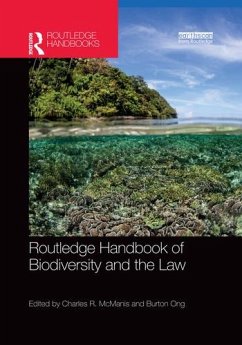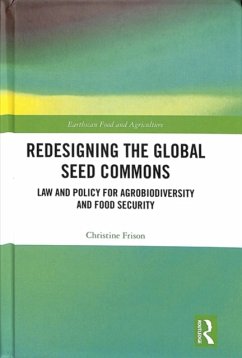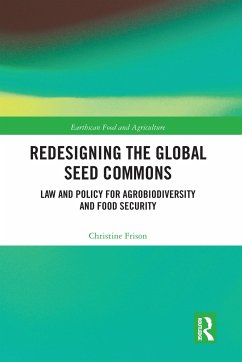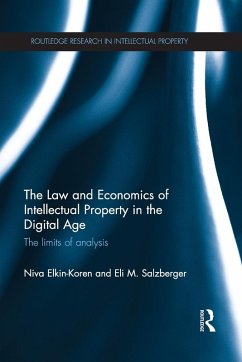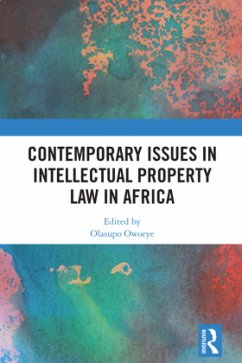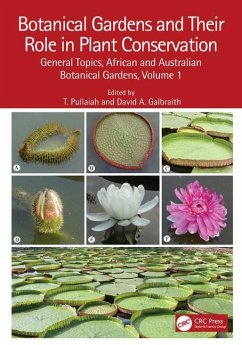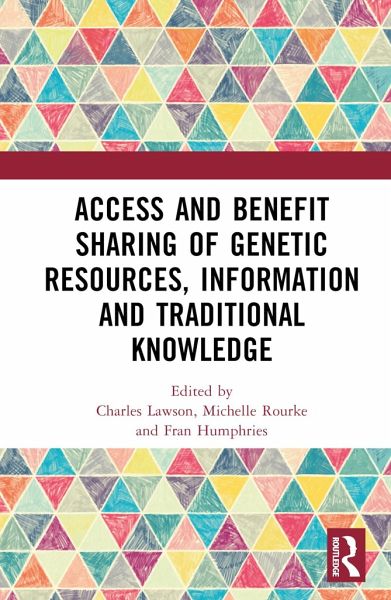
Access and Benefit Sharing of Genetic Resources, Information and Traditional Knowledge
Versandkostenfrei!
Versandfertig in 6-10 Tagen
138,99 €
inkl. MwSt.
Weitere Ausgaben:

PAYBACK Punkte
69 °P sammeln!
Addressing the management of genetic resources, this book offers a new assessment of the contemporary Access and Benefit Sharing (ABS) regime.Debates about ABS have moved on. The initial focus on the legal obligations established by international agreements like the United Nations Convention on Biological Diversity and the form of obligations for collecting physical biological materials have now shifted into a far more complex series of disputes and challenges about the ways ABS should be implemented and enforced. These now cover a wide range of issues, including: digital sequence information,...
Addressing the management of genetic resources, this book offers a new assessment of the contemporary Access and Benefit Sharing (ABS) regime.
Debates about ABS have moved on. The initial focus on the legal obligations established by international agreements like the United Nations Convention on Biological Diversity and the form of obligations for collecting physical biological materials have now shifted into a far more complex series of disputes and challenges about the ways ABS should be implemented and enforced. These now cover a wide range of issues, including: digital sequence information, the repatriation of resources, technology transfer, traditional knowledge and cultural expressions, open access to information and knowledge, naming conventions, farmers' rights, new schemes for accessing pandemic viruses sharing DNA sequences, and so on. Drawing together perspectives from an interdisciplinary range of leading and emerging international scholars, this book offers a new approach to the ABS landscape; as it breaks from the standard regulatory analyses in order to explore alternative solutions to the intractable issues for the Access and Benefit Sharing of genetic resources.
Addressing these modern legal debates from a perspective that will appeal to both ABS scholars and those with broader legal concerns in the areas of intellectual property, food, governance, Indigenous issues, and so on, this book will be a useful resource for scholars and students as well as those in government and in international institutions working in relevant areas.
Debates about ABS have moved on. The initial focus on the legal obligations established by international agreements like the United Nations Convention on Biological Diversity and the form of obligations for collecting physical biological materials have now shifted into a far more complex series of disputes and challenges about the ways ABS should be implemented and enforced. These now cover a wide range of issues, including: digital sequence information, the repatriation of resources, technology transfer, traditional knowledge and cultural expressions, open access to information and knowledge, naming conventions, farmers' rights, new schemes for accessing pandemic viruses sharing DNA sequences, and so on. Drawing together perspectives from an interdisciplinary range of leading and emerging international scholars, this book offers a new approach to the ABS landscape; as it breaks from the standard regulatory analyses in order to explore alternative solutions to the intractable issues for the Access and Benefit Sharing of genetic resources.
Addressing these modern legal debates from a perspective that will appeal to both ABS scholars and those with broader legal concerns in the areas of intellectual property, food, governance, Indigenous issues, and so on, this book will be a useful resource for scholars and students as well as those in government and in international institutions working in relevant areas.




